Why?
During a wildfire event, embers and larger firebrands can shower your home’s siding and will accumulate at the base.
Light fuels such as leaves and pine needles tend to accumulate there.
- Wind will blow firebrands and embers into this accumulated fuel, leading to ignition.
- When flames burn against the combustible siding, the home is likely to ignite.
- Noncombustible material on the vertical surface will reduce the likelihood of ignition occurring.
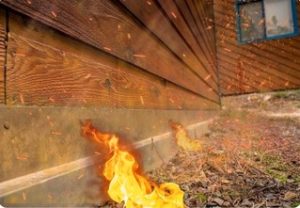
Metal flashing helps prevent debris from igniting wood siding.
Protect Home Base – A DIY Video
View the Protect Home Base – A DIY Video on the Wildfire Partners YouTube channel
How?
Retrofit the bottom six or more inches of your siding with a noncombustible material.
This applies to homes with siding made of combustible material like wood, vinyl, pressboard or wood-plastic composite.
You can take on this task yourself (DIY!) or hire a professional.
There should be a minimum of 6 vertical inches of exposed noncombustible material as measured from the ground level.
This can be achieved by:
- Cutting siding away to reveal 6 inches (or more) of concrete foundation if available.
- Overlaying a noncombustible material like metal flashing or fiber cement trim board on top of the bottom siding boards.
- Removing the bottom siding material and replacing with noncombustible material.
- Seal the top of the noncombustible material with caulk so water doesn’t get behind and rot the siding.
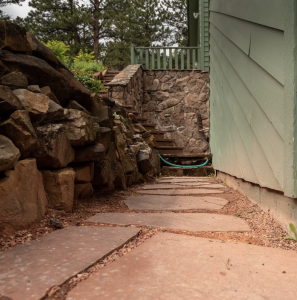
Protect a minimum of 6 inches from the ground up!
What?
Metal flashing, fiber cement trim board, stone, stucco, or corrugated metal are the most commonly used materials to provide protection at the base of walls.
Do You Know?
More homes ignite due to embers than to any other causes. Embers can travel a mile or more ahead of a wildfire.
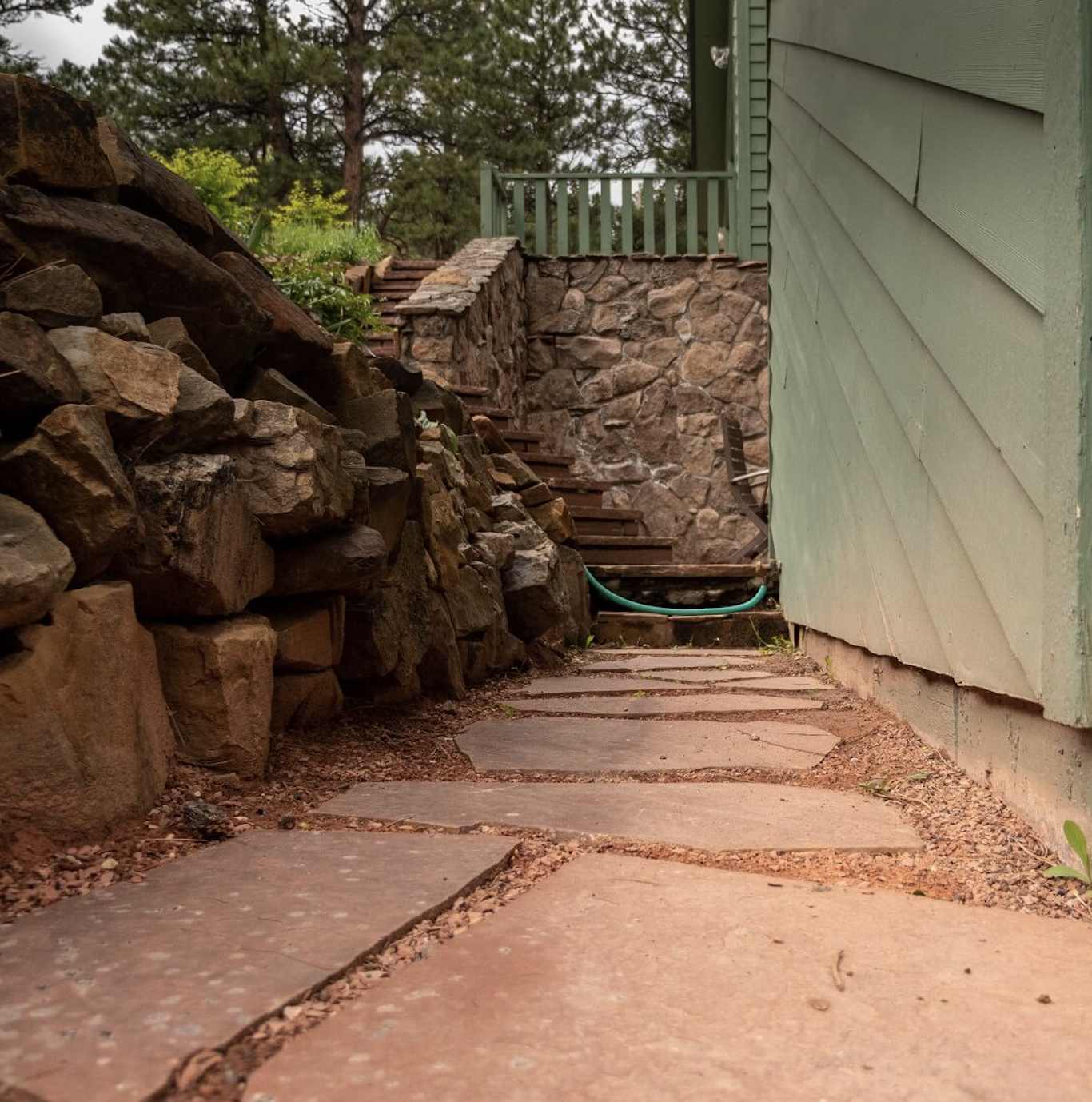
Cut the siding away
Cut the siding away to reveal 6 inches (or more) of concrete foundation if available.
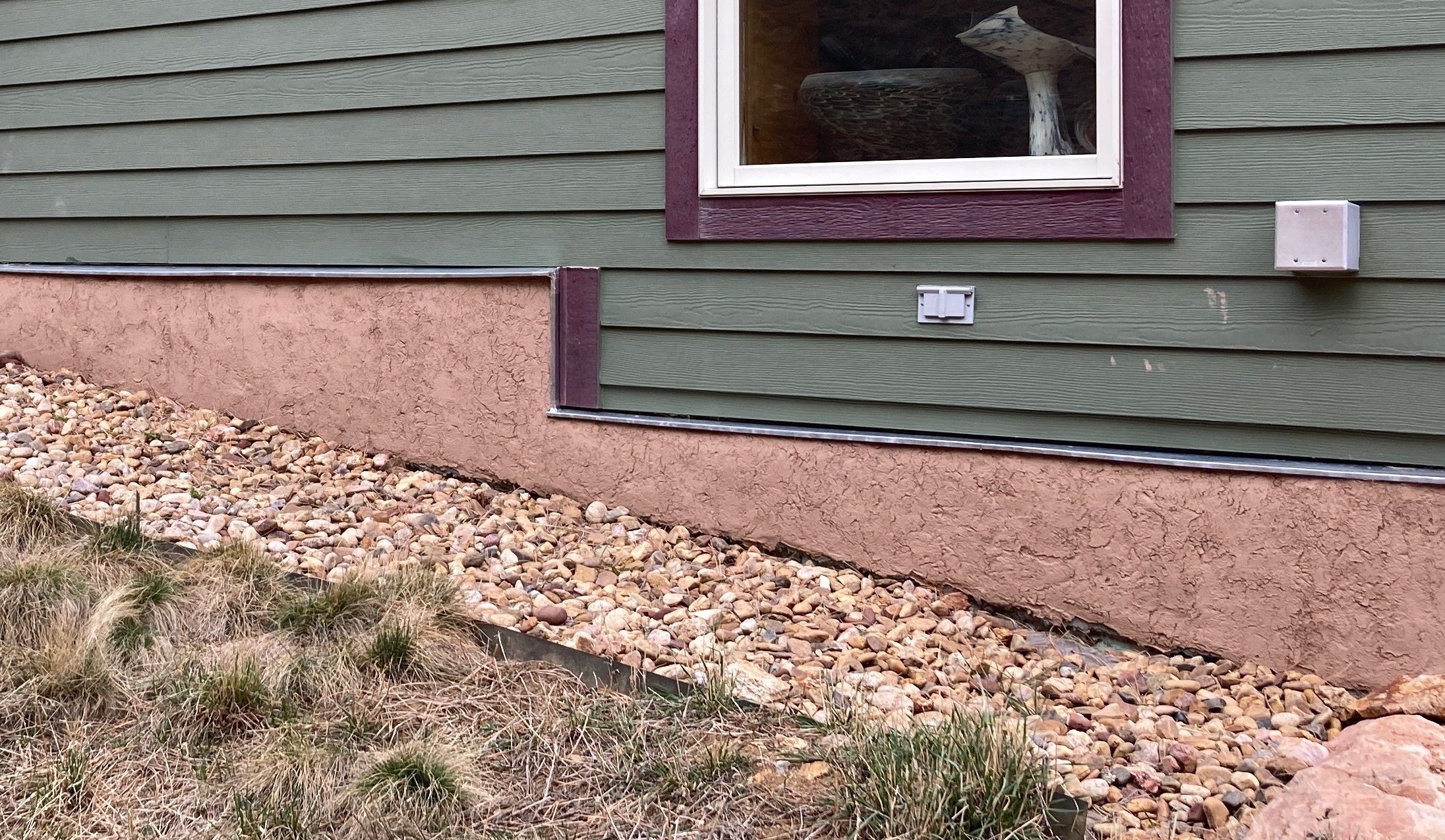
Remove and Replace
Remove the combustible siding material and replace with noncombustible, like stucco.
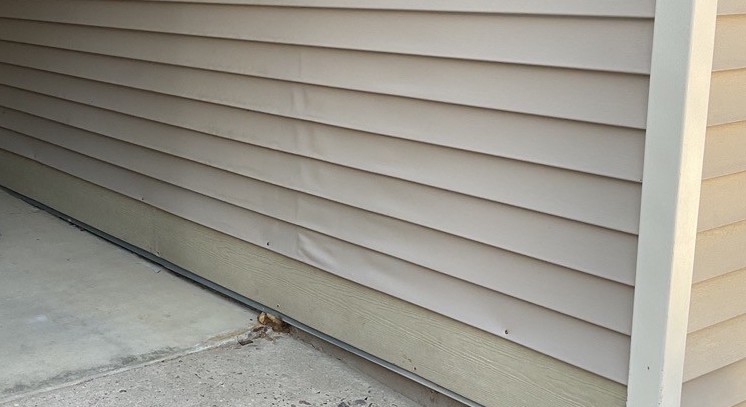
Remove and Replace
Replace combustible (in this case vinyl) siding with fiber cement trim board.
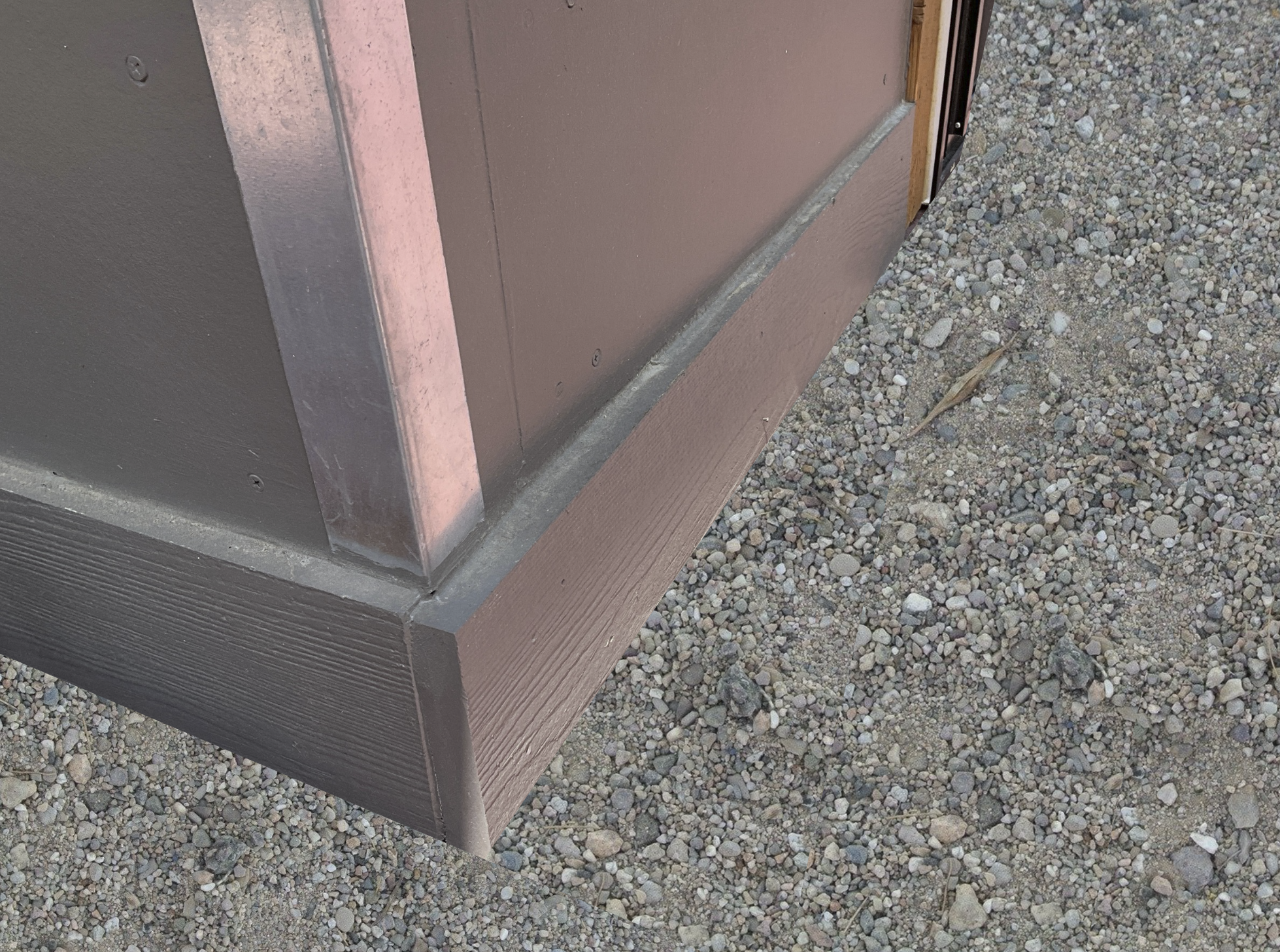
Overlay
Overlay a noncombustible material like fiber cement trim over combustible siding.
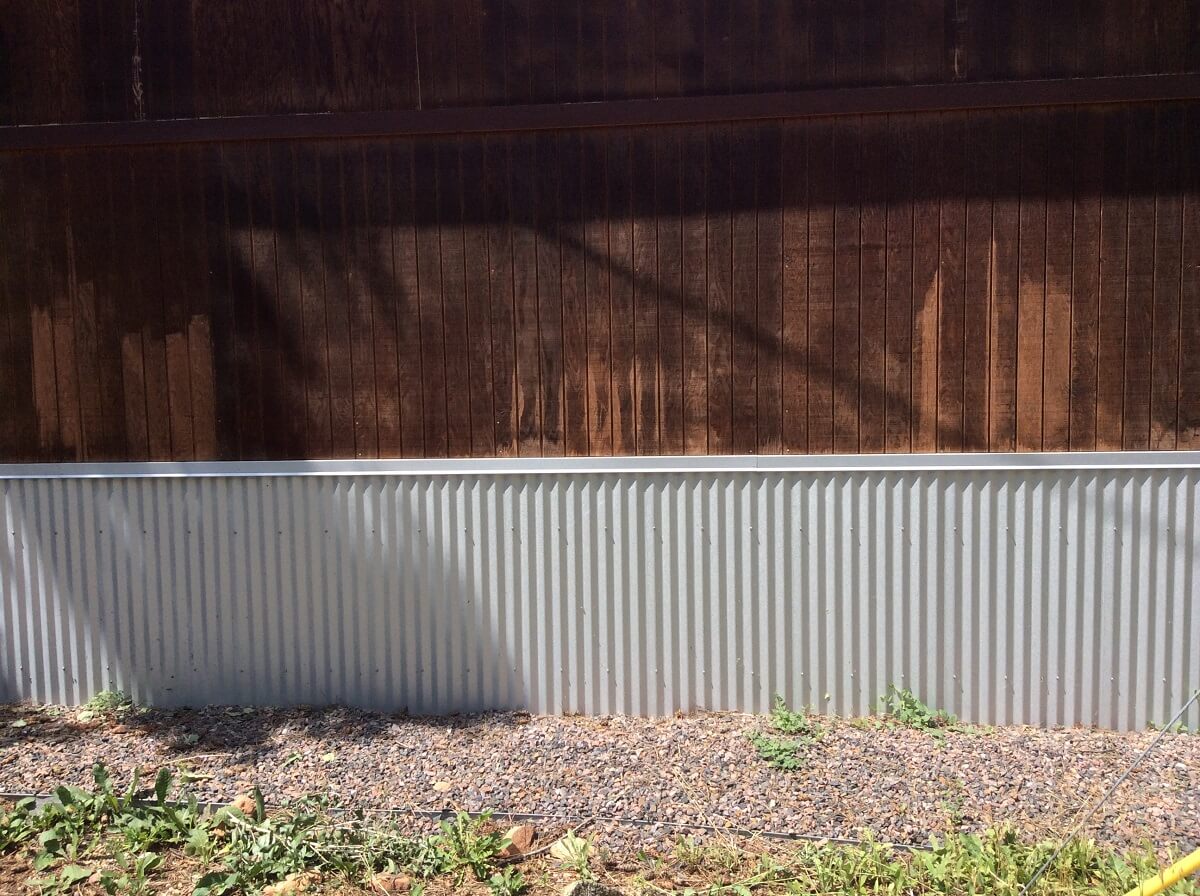
Overlay
Corrugated metal comes in various styles and can be used to cover combustible siding.
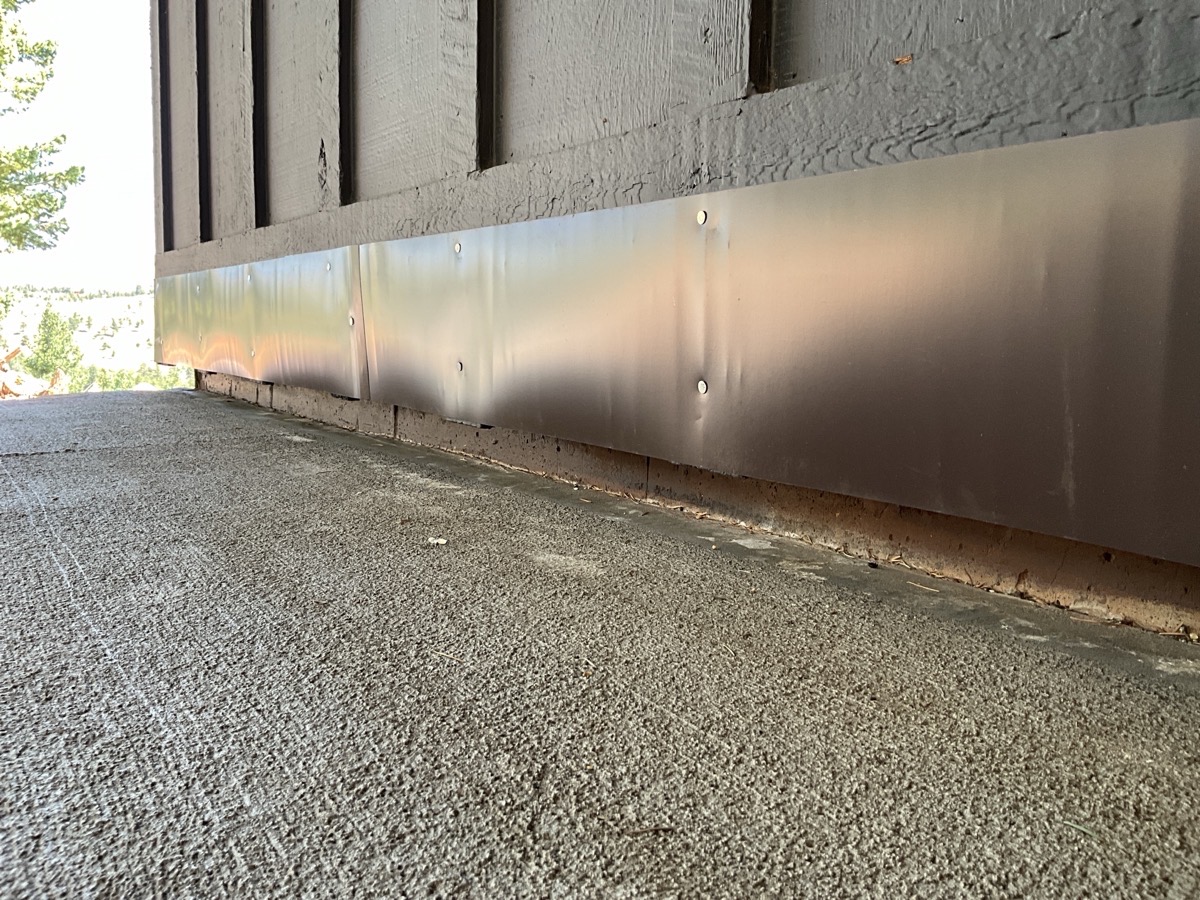
Overlay
Use colored or paintable metal flashing to cover and blend with combustible siding.
